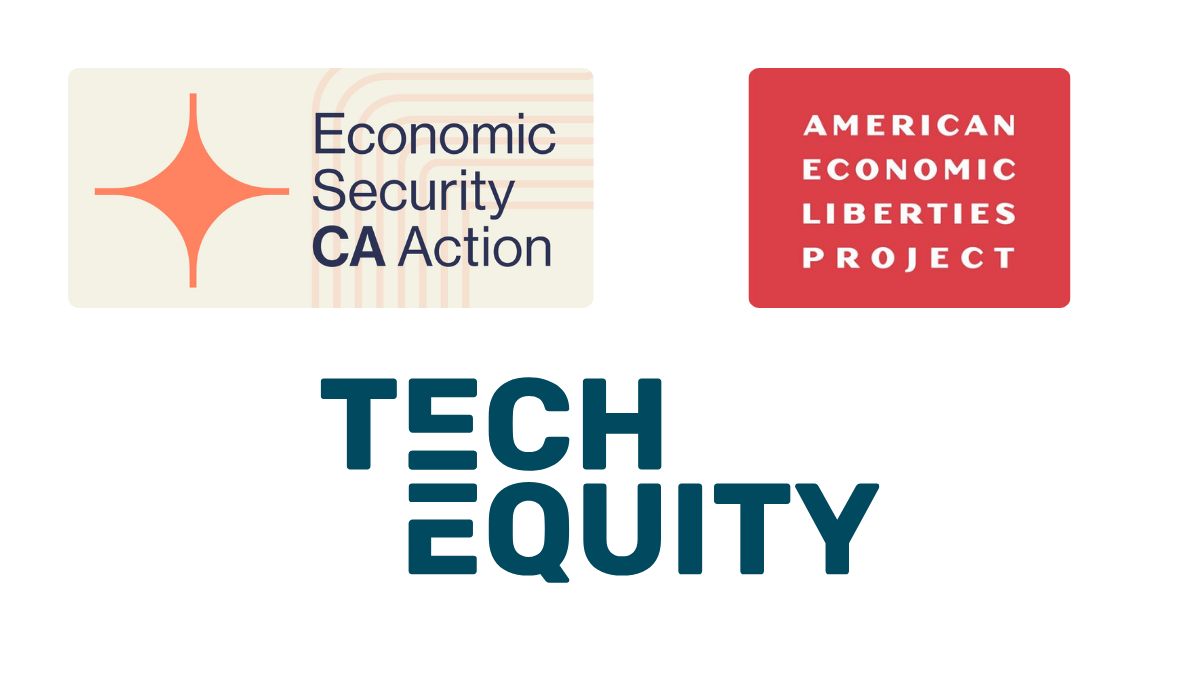
The Preventing Algorithmic Price Fixing Act – AB 325
You can’t hide behind digital tools to break the rules. Introducing The Preventing Algorithmic Price Fixing Act.
We should live in a world where our paychecks can cover our bills and pay for our groceries. But our wages aren’t rising to meet the increased costs of everyday essentials. In California, a single adult without children needs to earn almost double the state minimum wage to afford basic necessities.
Our affordability crisis isn’t just a result of happenstance. From April to September 2023, corporate profits drove 53% of inflation. How are they raising prices across the board?
Landlords are colluding to raise rents, grocery stores are jacking up the price of food, and rideshare companies are surging prices when people need rides the most. This goes beyond making a profit—companies are manipulating the market at the direct expense of people just trying to get by.
This type of corporate collusion, known as price fixing, was once conducted behind closed doors, in smoky backrooms, and through furtive handshakes. But now, price fixing is supercharged by tech.
While this is just as illegal as traditional price fixing, technology has made it easier for companies to break the rules in secret, at a speed and scale never seen before. Instead of handshake deals, companies now use third-party algorithms to coordinate prices, making it harder for law enforcement to detect.
We need to make it clear that companies can’t hide behind digital tools to break the rules.
That’s why Assemblymember Cecilia Aguiar-Curry authored AB 325, The Preventing Algorithmic Price Fixing Act. AB 325 updates California’s antitrust laws to address modern digital tools used for illegal price fixing by making it clear that using digital pricing algorithms (like computer software and apps) to coordinate prices among competitors is just as illegal as traditional price fixing. It also closes court-created loopholes for price-fixing algorithms by making it easier to bring good cases against illegal price fixing.
AB 325 is sponsored by TechEquity, Economic Security California Action (ESCA), and American Economic Liberties Project (AELP).
Want to stay in the loop on how AB 325 makes its way through the California Legislature? Sign up for our newsletter to get updates on this campaign, as well as other key initiatives to address tech’s impact on our lives.
Stay Up-to-date
What AB 325 will do
AB 325 ensures that California’s antitrust laws keep pace with modern technology by establishing clear-cut standards that prevent price fixing before it occurs, protecting consumers from price hikes, and allowing small businesses to set their own prices for goods and services. For the nitty-gritty details, you can check out the full bill language here.
AB 325 does five main things:
Bars companies from using third-party algorithms to secretly coordinate prices.
Clarifies and codifies that price fixing through algorithms is just as illegal as a direct agreement between competitors and uses best standards emerging through ongoing enforcement efforts.
AB 325 removes the “silver bullet” evidence requirement, allowing cases to proceed if enforcers have plausible evidence that a price fixing scheme exists.
Both the companies using the algorithms and the third-party providers of the algorithms can be held liable.
Discourages bad conduct by leveling the barrier to entry for enforcement of laws against illegal concerted action.
 Catherine Bracy Founder and CEO of TechEquity
Catherine Bracy Founder and CEO of TechEquityCorporations like grocery stores and Wall Street landlords are using AI to squeeze as much money as possible out of everyday people. We need to take action to catch up to the speed and scale at which tech is enabling unfair pricing practices that inflate costs and hurt working families.
AB 325 is sponsored by TechEquity, Economic Security California Action (ESCAA), and American Economic Liberties Project (AELP).

How price fixing is hurting people today
Can you believe that there’s a french fry cartel?
In April 2022, a sports bar owner in Washington, D.C. received an email stating that the four major frozen potato suppliers to restaurants nationwide were increasing their prices by 12 cents per pound. All of them: same price hike at the same time.
This wasn’t a coincidence. These four major potato players—who own 97% of the market—were all using a third-party pricing tool called “PotatoTrac,” which collects real-time data and automatically adjusts prices.
Soon after, from July 2022 and July 2024, the price of frozen french fries surged by 47%, even as the underlying costs declined. This sharp increase in wholesale prices strained small businesses, which were forced to either absorb the higher costs or pass them on to consumers, threatening their profitability and consumer relationships.
And it’s not just french fries. Across industries—from groceries to housing to healthcare—corporations are using tech to raise prices on California families already facing one of the highest costs of living in the country.
Share your story
Have you seen examples of tech-driven price fixing in your life? We want to hear your story.
"*" indicates required fields
